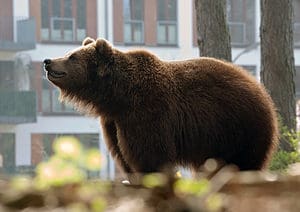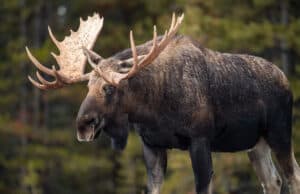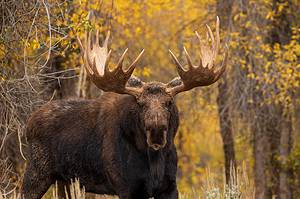For many hunters in the United States, the opportunity to hunt the tallest land animal on the continent is a dream. However, with a limited range in the United States, locating states home to the moose can be difficult. Locating states that then allow hunting of moose can be even more difficult. In this guide, explore 7 states that allow moose hunting in America and learn more about the laws and regulations.
Before getting started, the best way to learn about licenses and regulations is to reach out to your local wildlife office. Rules regarding hunting can change frequently, and your local wildlife office will be the best way to learn of the most up-to-date regulations and specifics.
Alaska
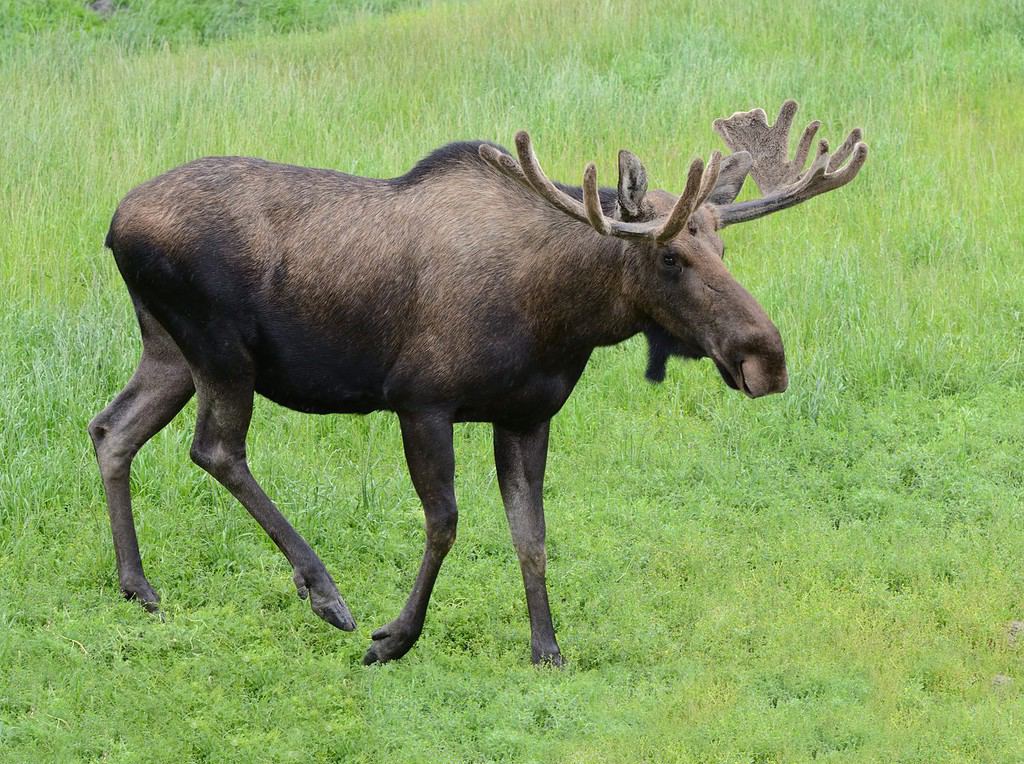
Alaska is the state best known for moose hunting.
©Michal_K/Shutterstock.com
Of all 50 states, Alaska is likely best known for its moose hunting. This is because the Alaskan or Yukon moose is the largest subspecies of all moose, making it ideal for trophy hunters and subsistence hunters.
Alaska offers several different hunting opportunities and permits, including draw and registration as well as Tier I and Tier II hunts. Registration hunts are those that many hunters are most familiar with, where they simply register for the tags to hunt certain animals. Draws are a lottery, often due to the result there is a highly limited number of tags. Each hunter may pay an application fee and be entered for a chance to win a tag. In Alaska, Tier I and Tier II hunts are Community Subsistence Harvest (CSH) hunts and subsistence hunts, respectively. These are only available for Alaskan residents who meet certain requirements.
Maine
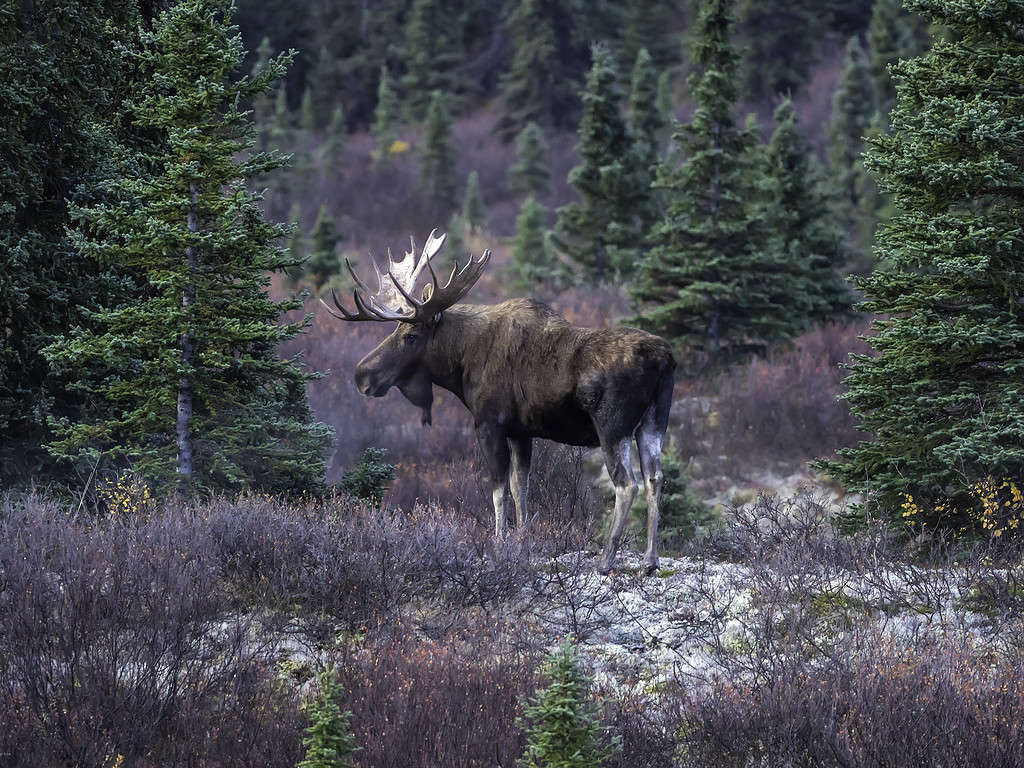
Of all states, excluding Alaska and Hawaii, Maine is the best for moose hunting.
©Dee Carpenter Photography/iStock / Getty Images Plus via Getty Images
While Alaska may be the state best known for moose hunting, Maine holds the title for moose hunting capital in the continental United States/lower 48 states thanks to it having the largest population for this range.
In the state of Maine, moose can only be hunted with a permit. There were a total of 4,105 permits issued for moose during the 2023 season. These permits can only be gained in a few ways, mainly through lottery drawing, donation, or auction. The donation option is available only for disabled veterans.
New Hampshire
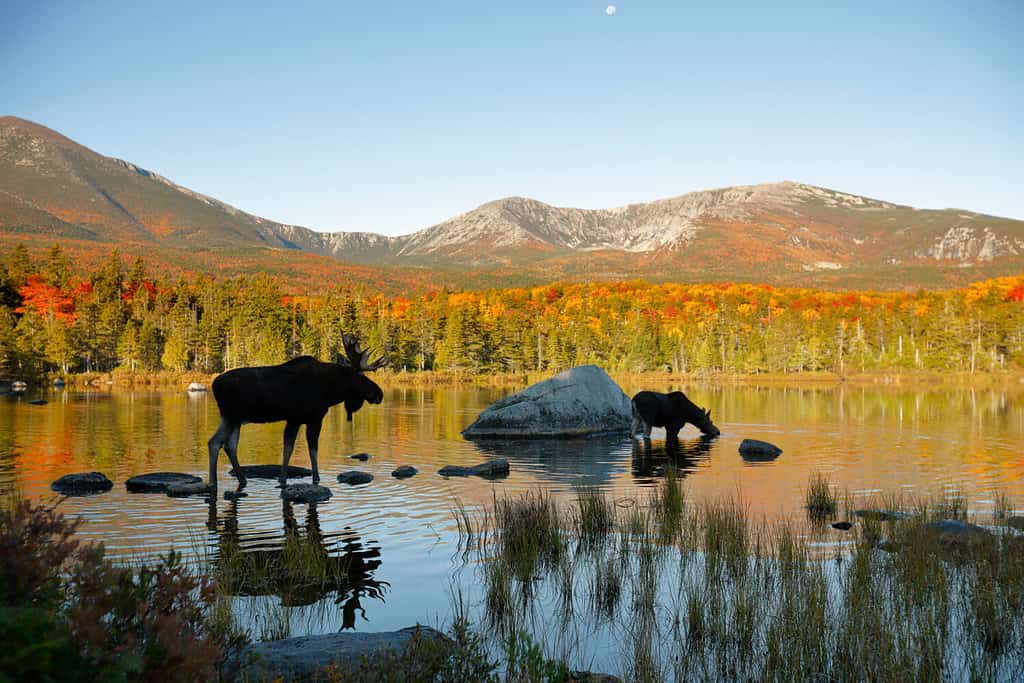
New Hampshire has a short but plentiful moose hunting season.
©Paul Tessier/Shutterstock.com
Whereas other states have long-lived moose hunting seasons, in New Hampshire, moose hunting only lasts for nine consecutive days. These typically occur starting with the third week of October.
In New Hampshire, permits for moose hunting are given only through lottery drawings. Overall, the chances of winning each year are equal among all applicants. However, individuals who have entered for several years and lost are given a point with each application. This slightly boosts their chances of winning the drawing.
Washington
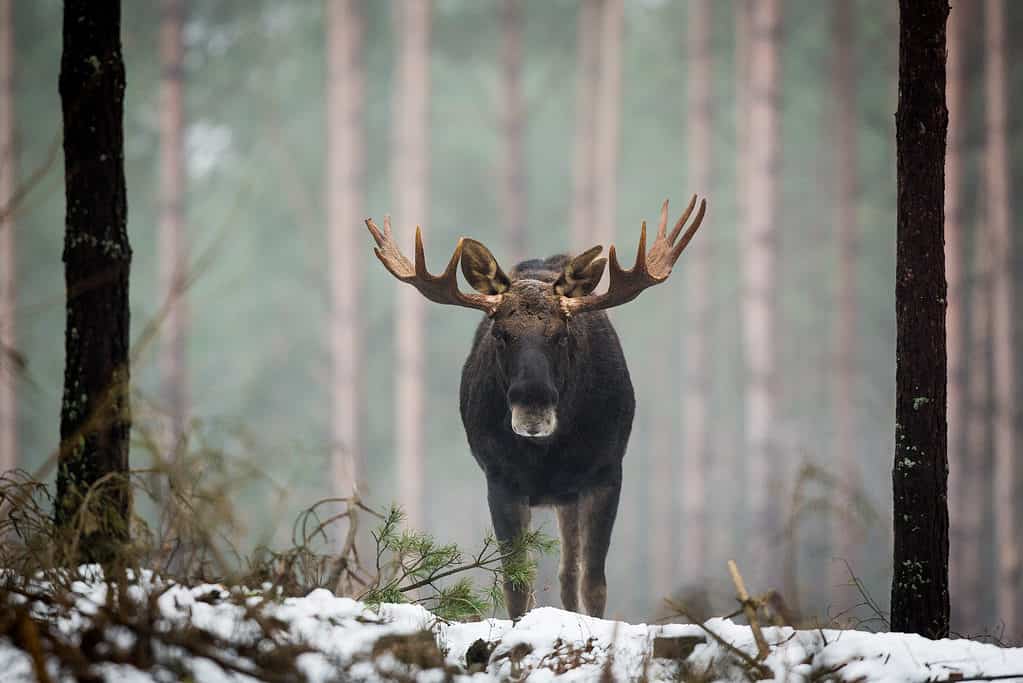
Because of smaller populations, moose hunting is often more regulated in Washington.
©Szczepan Klejbuk/Shutterstock.com
In many other states, you are allowed to hunt as many moose as you want in your lifetime, so long as you oblige by the other rules and regulations. Most often, a permit will only allow you to hunt a single moose in the season. However, this is not the same for Washington state.
Hunting a moose in Washington is truly a once-in-a-lifetime opportunity, at least for an altered moose. Anterless moose, such as females or males without antlers, can be hunted once per year with the right permits.
Idaho
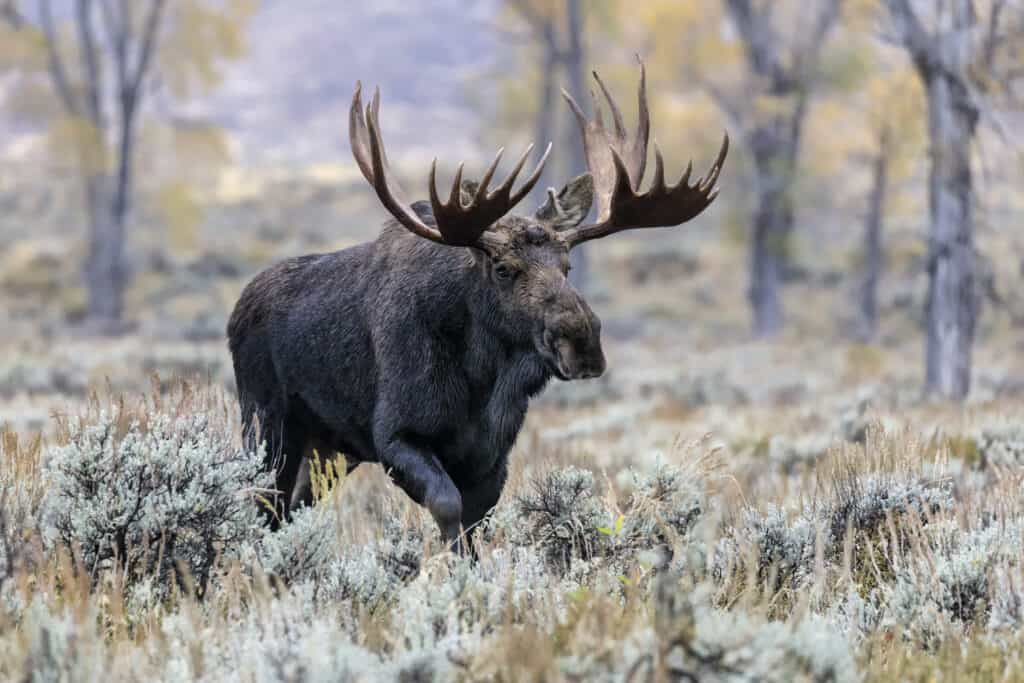
Idaho has one of the smaller populations of moose, and thus less permits available each year.
©David Osborn/Shutterstock.com
Like Washington, moose hunting in Idaho is highly controlled. In fact, hunters may harvest only a single bull (male moose) and cow (female moose) in their lifetime. However, there is a limited opportunity to enter a lottery drawing for additional unclaimed tags that would allow you to hunt additional moose.
Montana
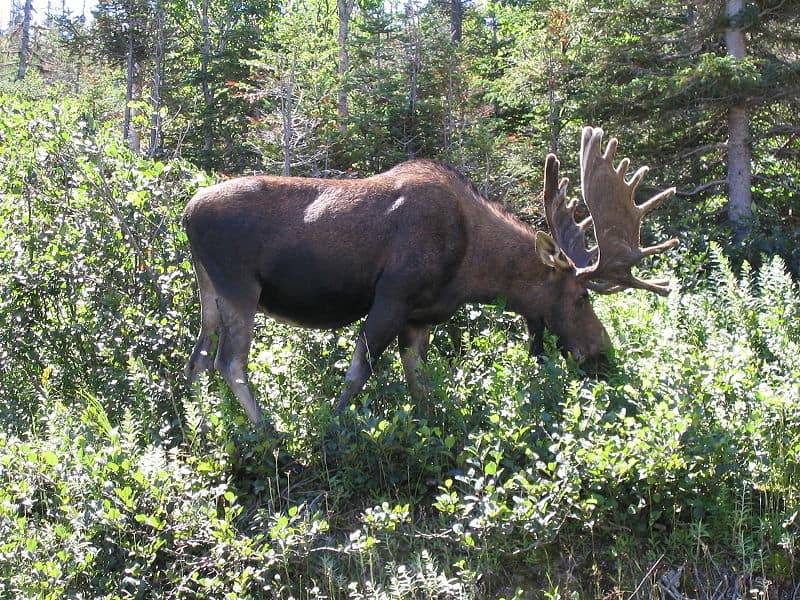
Montana is known for its abundant moose population. Because of this, hunting is popular here.
©Aconcagua / CC BY-SA 3.0, via Wikimedia Commons - License
Moose hunting is a popular category of hunting in Montana. Hunters from across the nation often visit this beautiful state for the opportunity to harvest one of the Shiras moose native to the area. Like with many of the other states that allow moose hunting in America, permits for hunting moose in Montana are earned through a lottery drawing.
Wyoming
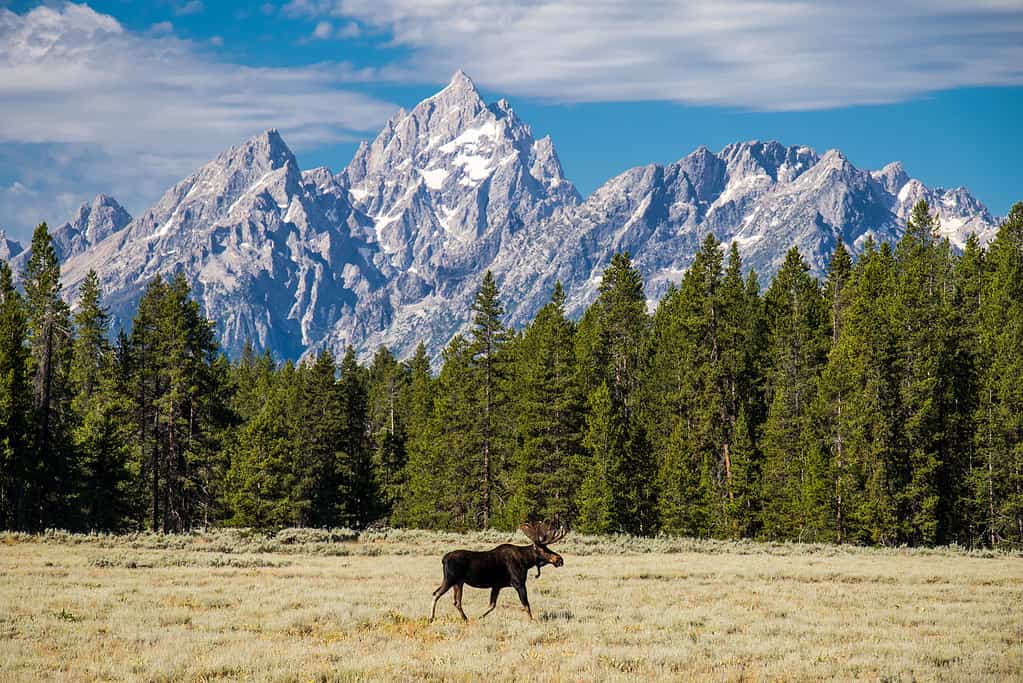
All of Wyoming is home to moose, but certain areas are more abundant and, therefore, better for hunting.
©Mike Casella/iStock / Getty Images Plus via Getty Images
In Wyoming, drawings are based on area and hunt type (cow or bull). As a result, winning one of the few limited permits will have varying odds. These depend on where you wish to hunt and what animals. Cows often offer the best chances of earning a permit. On the other hand, bulls are often more highly coveted and thus more difficult to win a permit for. 90 percent of all permits given out each year are allocated for residents of the state only, with the remainder being for non-residents.
There are several different types of licenses and permits for moose hunting in Wyoming. Some of these are once-in-a-lifetime options, while others are once every five years.
The photo featured at the top of this post is © Tom Tietz/Shutterstock.com
Thank you for reading! Have some feedback for us? Contact the AZ Animals editorial team.




